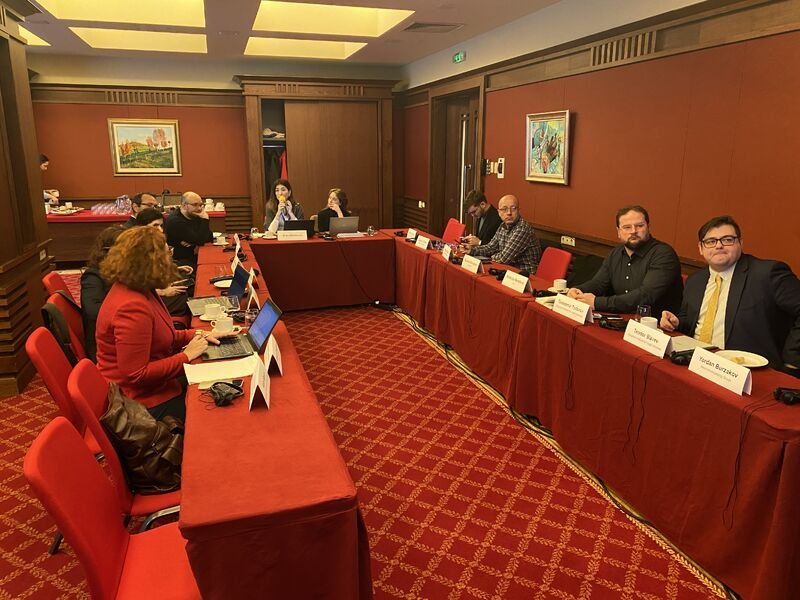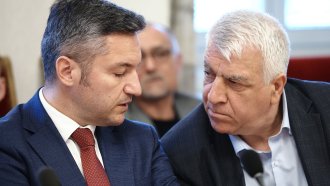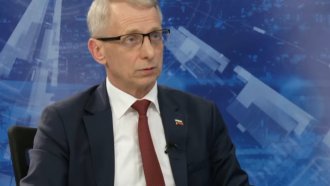In October 2023, the Financial Action Task Force (FATF), the watchdog responsible for setting international standards on anti-money laundering and counterterrorism financing (AML/CTF), added Bulgaria to the list of countries under increased scrutiny. Also known as ‘grey listing’, this process targets countries that are found to be in poor compliance with FATF’s standards, but that have agreed to actively work with the watchdog to address their strategic deficiencies. Bulgaria is the second EU country, after Croatia, to be added to the list.
Grey listing signals the inadequacies of a country’s financial integrity and its response to money laundering risks and its enabling offences, such as corruption. It exposes the country to substantial reputational risks: international banks and investors may also approach transactions with the grey-listed country with heightened caution. In Bulgaria, signs of this caution have already started to be felt in the business community.
Despite the potential implications, the news of Bulgaria’s grey listing went relatively unnoticed. Reporting of the FATF’s decision focused on the company Bulgaria joins on the list, rather than on the consequences of the grey listing. At a recent roundtable hosted by the Centre for Financial Crime and Security Studies at RUSI together with the Bulgarian Center for Non-For-Profit Law (BCNL), civil society attendees also reported they had limited knowledge of grey listing processes and their consequences. Understanding why Bulgaria has come to this point, and what it means for the country, should then be the starting point of the response.
But Why Bulgaria?
In a recent interview, one of the RUSI-BCNL roundtable attendees argued that the FATF’s decision was unjustified and not at all a reflection of the country’s current money laundering risks. The FATF assessment disagrees. It highlights that corruption and serious organised crime are two major threats facing Bulgaria. At the RUSI-BCNL roundtable, most attendees concurred with the watchdog that corruption is a problem for the country, and that little to no action is taken to bring to justice corrupt officials.
FATF also reports a lack of effective response due to resource limitations, limited use of financial intelligence, investigations, prosecutions, and confiscation of criminals’ proceeds also contributed to the FATF’s decision. In this regard, neglect, disinterest, and lack of understanding by the Bulgarian government are mostly to blame. If the government doesn’t see the need to meet the FATF’s standards, then implementation and resourcing of the enforcement response will not be high on its agenda. Without political will, every financial crime response is destined to crumble.
The FATF assessment of Bulgaria seems therefore to have hit the right spot. Given the prevalence of reported corruption, the lack of statistics on the number of money laundering and corruption cases initiated – another issue highlighted in the FATF assessment – is an indication that the financial crime response in Bulgaria is not working as it should, rather than a sign that there is little to no money laundering risk in the country. To claim there is an absence of evidence of money laundering is different from claiming there is an absence of money laundering. Thus, Bulgaria currently stands at a crossroad, where acknowledging the urgency of the issues it faces and addressing them is paramount.
Why care?
The vulnerabilities and deficiencies highlighted in the FATF assessment, and their consequences, are not as visible as thugs and gun fights in the street. They are more subtle, but equally pervasive and impactful on a country’s economy and society: corruption deprives countries of vital resources, weakens democratic institutions, and corrodes the rule of law when it goes unpunished. It reduces public trust in democratic process and institutions: Bulgaria is currently ranking second for perceived corruption among EU member states.
Some have argued that the problems in Bulgaria are potentially ‘not of the scale that threatens the stability of the international financial system’. May be not, but they deeply affect the integrity of Bulgaria itself as well as the European Union as a whole. For instance, the Center for the Study of Democracy reported in 2020 that approximately 15% of the funds received from the EU are embezzled. Leading politicians from Bulgaria’s anti-corruption Yes Bulgaria party have also argued that the siphoning of EU funds is now one of the main revenue streams of organised crime groups.
Accepting and responding to the FATF’s requirements is therefore both a matter of national interest as well as a collective responsibility as an EU member state. Meeting the watchdog’s standards would help the country achieve more than a get-out-of-jail card: combatting corruption is one of Bulgaria’s conditions to secure funding under the Recovery and Resilience plan, and it also plays a significant role in Bulgaria’s goals to join the Eurozone. It would also restore integrity in its financial and political system. Indeed, the stakes are high, and the consequences of getting this fight against the financial crime in the country wrong are far-reaching, impacting Bulgaria’s political, and international standing besides its economy and society.
What now?
According to FATF, the way for Bulgaria out of the grey listing includes implementing a national AML/CTF strategy, addressing technical compliance deficiencies, and improving transparency and investigations and prosecutions of money laundering. The initial steps toward achieving these objectives necessitate the government's formulation of an action plan, coupled with an agreed-upon timeframe for its execution. In this regard, what is most needed for Bulgaria is a proper understanding of the risks it faces. Put simply, it lacks understanding of the connection between corruption and money laundering, and the dire consequences that these have on society.
However, the challenge extends beyond government actions. Civil society, often at the forefront of advocating for societal change, should view the grey listing as an opportunity for transformative action and identify ways to get involved with driving this action. It is important that in the face of the grey listing they are not passive observers but active agents for change.
But how? They can actively work to demystify the implications of the grey listing and highlight the link to money laundering and corruption in Bulgaria. They can also closely monitor the commitments made by the government. The focus should not just be on rhetoric, but also on the tangible actions taken and the efficacy of their implementation. To do so, they should seek internal cohesion and engage with government and the private sector to address the deficiencies highlighted by the FATF.
In conclusion, even though it took the country by surprise, the grey listing should have been expected. It represents a wake-up call for Bulgaria to shake itself from the apathy which has pervaded its response to money laundering and corruption over the past decades. What matters now is what Bulgaria – from the government to civil society, to the private sector – wants to do about it. Removing itself from the grey list will take several years. Achieving it requires a collaborative and collective whole-of-a-system response. It would need more than a series of isolated actions or wishful thinking — it's about actively understanding the risks Bulgaria faces and forging a united front with the shared goal of addressing them.
Ключови думи
За честна и независима журналистика
Ще се радваме, ако ни подкрепите, за да може и занапред да разчитате на независима, професионална и честна информационно - аналитична медия.
 2 коментара
2 коментара
Екипът на Mediapool Ви уведомява, че администраторите на форума ще премахват всички мнения, съдържащи нецензурни квалификации, обиди на расова, етническа или верска основа.
Редакцията не носи отговорност за мненията, качени в Mediapool.bg от потребителите.
Коментирането под статии изисква потребителят да спазва правилата за участие във форумите на Mediapool.bg
Прочетете нашите правила за участие във форумите.
За да коментирате, трябва да влезете в профила си. Ако нямате профил, можете да се регистрирате.





По-спокойно. Явно това е оригиналния текст, предоставен за публикуване на редакцията. Преводът е на много по-видно място по-горе (https://www.mediapool.bg/bulgaria-sabudi-se-shtom-ima-koruptsiya-znachi-se-perat-pari-news355571.html). Разбира се, можеше да има редакционен коментар, кои са авторите и коя организация представляват, но оригиналния текст е за тези, които го разбират и биха се усъмнили, че превода е неточен, което се случва.
Това не е ли българска медия? Българският език не е ли официалният език в страната по конституция или вече пишем на “американски”